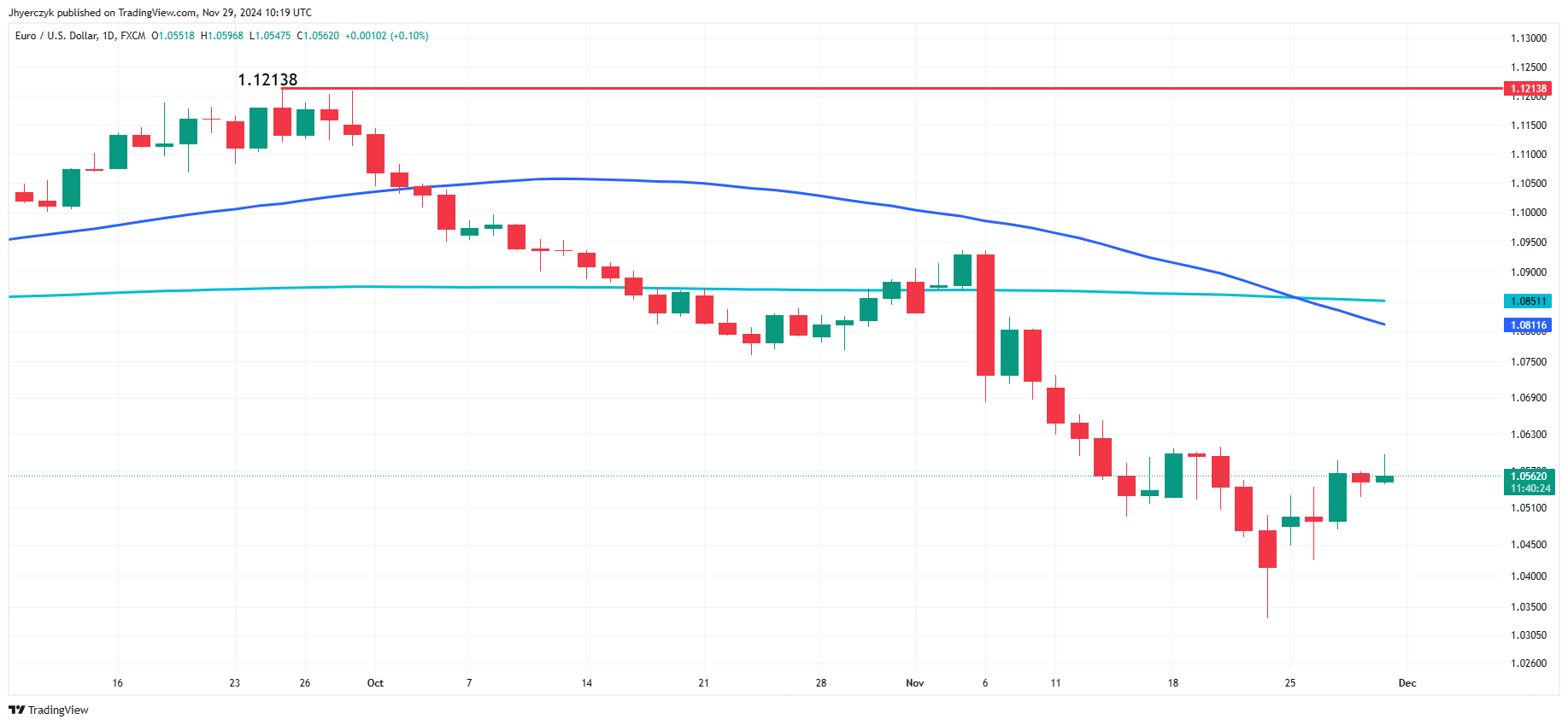“Eurozone inflation rises to 2.3% in November, driven by services and easing energy deflation. How will this impact ECB policy and EUR/USD trends?”, — write: www.fxempire.com
- Eurozone inflation rises to 2.3% in November, led by services inflation at 3.9%. How will this affect ECB’s next policy moves?
- Core inflation holds steady at 2.7%, signaling persistent price pressures. Can the ECB afford to ease monetary policy in 2024?
- Energy deflation slows to -1.9%, softening its drag on Eurozone prices. Is the disinflation trend coming to an end?
- Member states show inflation divergence: Belgium leads at 5.0%, while France and Germany remain below 2.5%.
- EUR/USD traders face uncertainty as rising inflation challenges the ECB’s dovish outlook amid stable core price growth.

What Drove November’s Inflation Increase? The inflation increase reflects varied trends across key sectors. Services continued to show the highest annual inflation rate at 3.9%, marginally down from October’s 4.0%. Food, alcohol, and tobacco inflation edged lower to 2.8%, from 2.9% in the prior month. Meanwhile, non-energy industrial goods recorded a slight rise to 0.7% from 0.5%, indicating persistent price stickiness in some categories.
Divergences Across Member States Inflation levels varied significantly across the Eurozone. Belgium reported the highest inflation rate at 5.0%, while Germany and France, the bloc’s largest economies, saw more moderate rates of 2.4% and 1.7%, respectively. Notably, Italy experienced a marked increase, with inflation climbing to 1.6% from 1.0% in October. These disparities reflect differing economic conditions and energy dependencies within the bloc.
Impact on ECB Policy and EUR/USD

For the EUR/USD pair, the inflation data adds to near-term uncertainty. A more hawkish ECB stance could support the euro, particularly if U.S. Federal Reserve policy diverges toward a more accommodative path. However, continued softness in broader economic indicators, coupled with geopolitical uncertainties, may limit significant euro gains.
Market Outlook In the short term, traders should watch for further data confirming the inflation trajectory and ECB policy signals. If energy prices stabilize and core inflation persists, a bullish case for the euro may emerge. However, persistent economic fragility across the bloc could weigh on EUR/USD sentiment, leading to choppy trading conditions.
More Information in our Economic Calendar.
About the Author
James is a Florida-based technical analyst, market researcher, educator and trader with 35+ years of experience. He is an expert in the area of patterns, price and time analysis as it applies to futures, Forex, and stocks.






Advertisement
